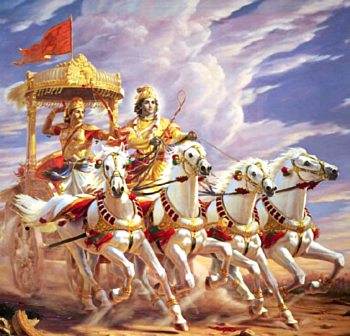― Corey Taylor, Seven Deadly Sins: Settling the Argument Between Born Bad and Damaged Good
The part of the world where I come from has its own sayings, beliefs, perceptions and ideology. Now you might question the appositeness of such convictions. The doctrine here that imparts vividness to this theory is the Asian subcontinent is more like a parallel universe. It’s a land of myths and hard facts that are completely antagonistic in nature. It’s a land of extreme admissions that refuse to go hand in hand. It’s a land where certain dogmas are ranked higher than human life, philosophy and creed.
 |
| An allegorical image depicting the human heart subject to the seven deadly sins, each represented by an animal (clockwise: toad = avarice; snake = envy; lion = wrath ; snail = sloth; pig = gluttony; goat = lust; peacock = pride). Source: Wikipedia |
Having said that, one of the many theories that have surprised me here is the one that talks of the Capital Vices or as the European mnemonic narrated it, “SALIGIA”, meaning superbia, avaritia, luxuria, invidia, gula, ira, acedia. Though an international phenomenon and a universal theory, the Indian version of it has always enticed me beyond my understanding of the subject. You see, when any global theory gets its Indian version, not only we minutely change a few ordeals, but we also secretly sneak in a few of our self-made spiced detailing of the notions. The insight here is to create a tradition that does not offend our spiritual (which we use as a synonym for superstitious sometimes) aspects even if the very meaning of the original stature alters.
The Capital Vices , often referred to as the ‘7 deadly sins’ are by nature considered as the prime impression to educate and instruct people about human tendency of resignation towards a sin. They say to fail the theory of modern day sciences and investigations that combat mano-a-mano with our churchly rules, one must avoid falling a victim to Lust, Pride, Envy, Gluttony, Anger, Greed and Sloth.
 |
| 7 deadly sins Source: socialnorth |
The modern day ravishing code and the current approach of a more rational humanism has significantly given rise to this whole new avenue of the coded verses where a human soul, for his own egg in one’s beer, may resort to diabolic approaches and remarkable techniques of metamorphosis of the game. We now live in an era where one man’s blood is another man’s beer. We are undergoing a radical transformation, perhaps the most barbaric one. The 2012 world may not visualize and acknowledge the notability of a world where benevolence is ranked higher than materialism but the fatalness of the situation yet to arise may put squeeze to do so. And so the 7 deadly sins, which they say if violated, may lead to dogmatic consequences at the gates of Hekla, are also, in the present society, shunned, disdained and brushed off.
 |
| Source: Epilogue |
Now I’m not much of a philosopher. In fact when it comes to such thought provoking stuff, I don’t mind being labeled as an ignoramus for once. And the reason why I’m forced to think upon this subject of the cardinal sins is because I have been on the giving end of it. I have committed all of them. I have fallen a victim to all such debts of desire. Which, however, is not that striking because if you look back, you’ll realize you and me are walking on the same track with different paces. Rendering to which, we may not realize how difficult it has been for the folks who have been on the receiving end of it. But anyway! The point here that I’m trying to make is that despite of falling a prey to all of them, despite of acknowledging the fact that I have fallen a prey, my instinct somewhere refuses to believe and accept that what I did, according to the holy books, is considered the most impregnable veniality in the face of human history. Regardless of how small or petty it was, such disobediences are not forgiven in the court of supernatural.
If pride is considered as a sin, haven’t we all executed it? Recall the moment when we last expressed excessive belief in our own comprehension. Yesterday? Last week? Last month? Never say never. If greed is one cardinal sin, when was the last time you wished you had brighter comforts and sounder indulgences? For anger to be an unforgiving vice, remind yourself of the last act of infraction you became a victim of.
 |
| Mahabharata's concept of revenge being the purest emotion. |
The Gandhian principles have been muted. The Christian doctrine of turning the other cheek is not recognized further. Like I mentioned earlier, the Asian subcontinent has had a widespread history of established wisdoms and omens. One of the very popular sayings from Mahabharata establishes that “Revenge is the purest of all emotions”. Revenge in itself mocks at the very notion of anger and pride for it’s the outcome of the same.
The human mind that seeks salvation is a conspiracy of all such controversies. One side doesn’t let him surrender, and the other doesn’t let him fall apart.
If envy is a vice, calm yourself down, because there are numerous instances you can remind yourself when you’ve been a scapegoat of this one. Subjects may differ, but this green-eyed monster has had his blessings on you. Gluttony to us is more of an obsession. We regret yet do it again.
“I do not blame you, Maharaja, for hitting an innocent man. For, cruelty comes quick to the powerful.”
Another verse from Mahabharata where we speak of power blindfolding the emperor. Though spoken in disgust, the envy, the anger and the gluttony have been depicted and recited evenly. The verses where we talk of power are synonyms of those where we talk of the drastic outcomes of what happens when it goes wrong. Traditions have inspired generations and will continue to do so.
‘I know what is right but I cannot do it; I know what is wrong but cannot desist from doing it.’
(Duryodhana in the Mahabharata)
 |
When I am asked, what is my view of the concept of pearly gates and its association with the 7 deadly sins (very often I’m asked this by myself only), I have this amateur theory that ‘we all spend an equal amount of time in hell. Its just the address of hell that changes.’ And in context of the se7en sins, the ones on the giving end of it are yet to see it and the ones on the receiving end are already going through it. Its not too far when we’ll trade places.
Lust. Well! If I were to be taken in for a trial and if this whole concept exists, I’d be damned for this one. The punishment for this is getting smothered in fire and brimstone. I am preparing myself for it mentally though! And yes, sloth, if lack of physical activity is also a sin, most of you will be damned for this one. Getting thrown into snake pits is not that bad of a punishment.
As our deeds shall bottom line the exit, I wonder where does my hell or heaven start from and if it does, will it be worth it?
"Bura Jo Dekhan Main Chala, Bura Naa Milya Koye
Jo Munn Khoja Apnaa, To Mujhse Bura Naa Koye"
-Kabir
Translation:
I searched for the crooked, met not a single one
When searched myself, "I" found the crooked one.
No comments:
Post a Comment